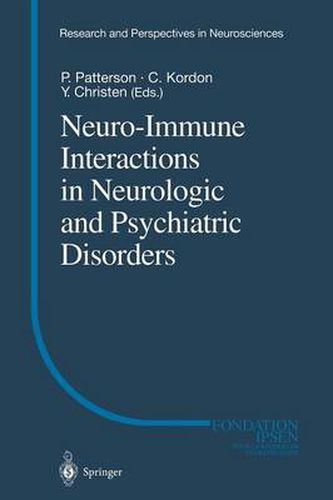Readings Newsletter
Become a Readings Member to make your shopping experience even easier.
Sign in or sign up for free!
You’re not far away from qualifying for FREE standard shipping within Australia
You’ve qualified for FREE standard shipping within Australia
The cart is loading…






This title is printed to order. This book may have been self-published. If so, we cannot guarantee the quality of the content. In the main most books will have gone through the editing process however some may not. We therefore suggest that you be aware of this before ordering this book. If in doubt check either the author or publisher’s details as we are unable to accept any returns unless they are faulty. Please contact us if you have any questions.
The idea that the brain is an immune-privileged site has perhaps served to slow our realization that the intact brain can generate its own inflammatory reactions. These responses can be to peripheral infection, or they can arise from local, internal causes, for instance as a response to stress or to the se vere changes in neuronal activity in seizure or the loss of oxygen in stroke. We are also becoming increasingly aware of the contribution of local inflam matory reactions to certain neurodegenerative diseases such as Alzheimer’s In fact, evidence is accumulating that inflammatory processes disease (AD). contribute to the progression of AD, suggesting the possibility of using cur rently available or novel anti-inflammatory agents to interfere with this terri ble disease. Correlations are also being made between inflammatory signs and mental illness, which is a new frontier of research. This book presents the current state of knowledge in a variety of areas relevant to neuro-immune interactions, with particular attention to AD.
$9.00 standard shipping within Australia
FREE standard shipping within Australia for orders over $100.00
Express & International shipping calculated at checkout
This title is printed to order. This book may have been self-published. If so, we cannot guarantee the quality of the content. In the main most books will have gone through the editing process however some may not. We therefore suggest that you be aware of this before ordering this book. If in doubt check either the author or publisher’s details as we are unable to accept any returns unless they are faulty. Please contact us if you have any questions.
The idea that the brain is an immune-privileged site has perhaps served to slow our realization that the intact brain can generate its own inflammatory reactions. These responses can be to peripheral infection, or they can arise from local, internal causes, for instance as a response to stress or to the se vere changes in neuronal activity in seizure or the loss of oxygen in stroke. We are also becoming increasingly aware of the contribution of local inflam matory reactions to certain neurodegenerative diseases such as Alzheimer’s In fact, evidence is accumulating that inflammatory processes disease (AD). contribute to the progression of AD, suggesting the possibility of using cur rently available or novel anti-inflammatory agents to interfere with this terri ble disease. Correlations are also being made between inflammatory signs and mental illness, which is a new frontier of research. This book presents the current state of knowledge in a variety of areas relevant to neuro-immune interactions, with particular attention to AD.